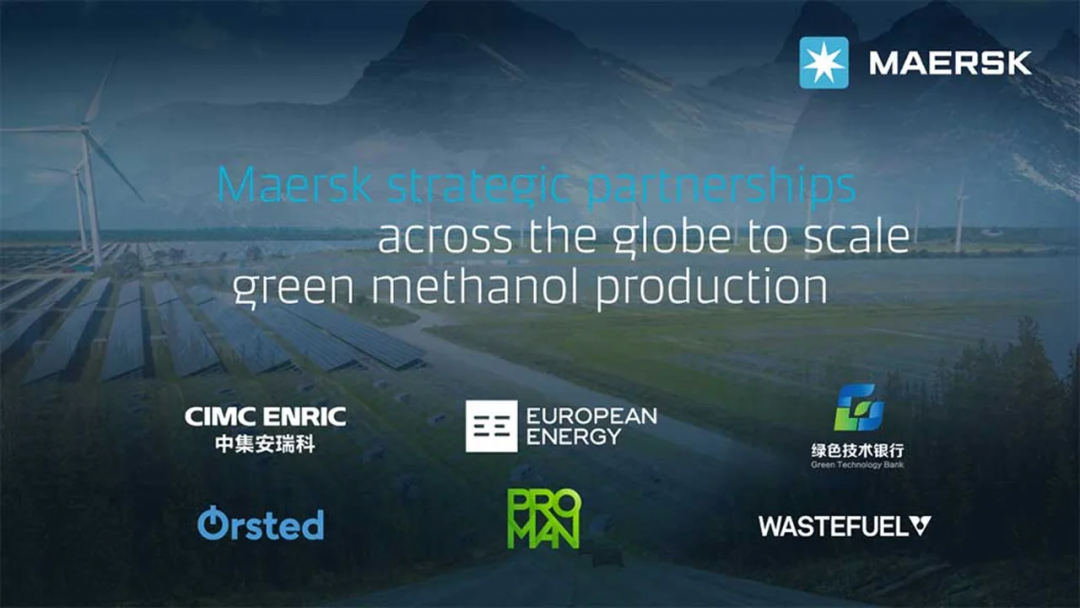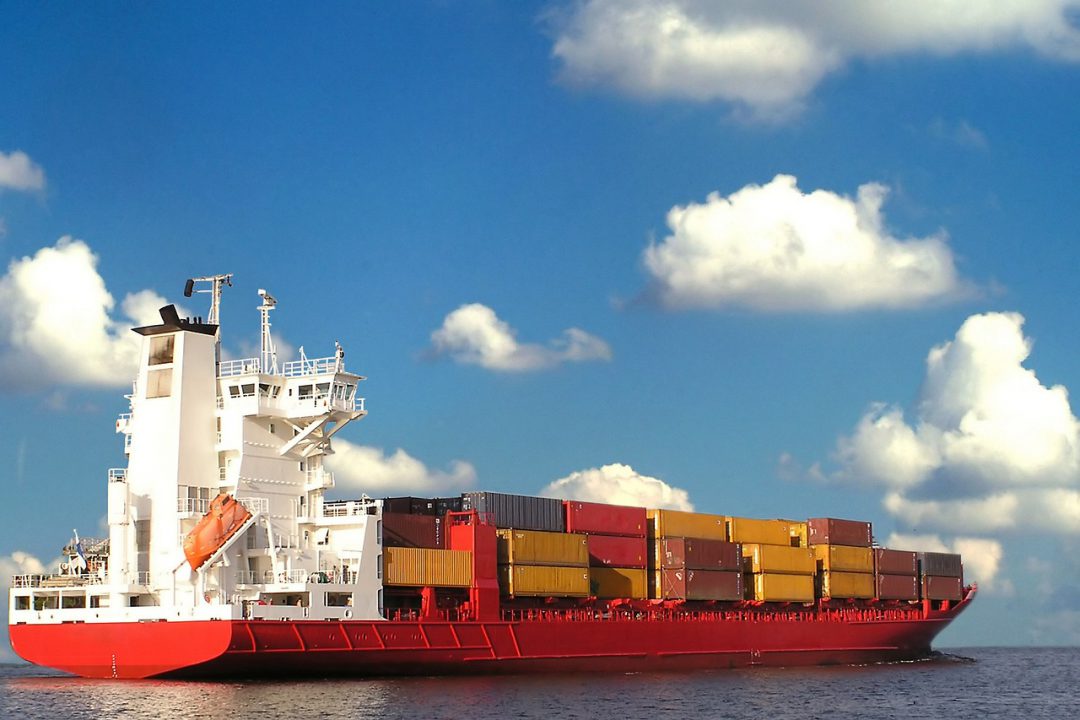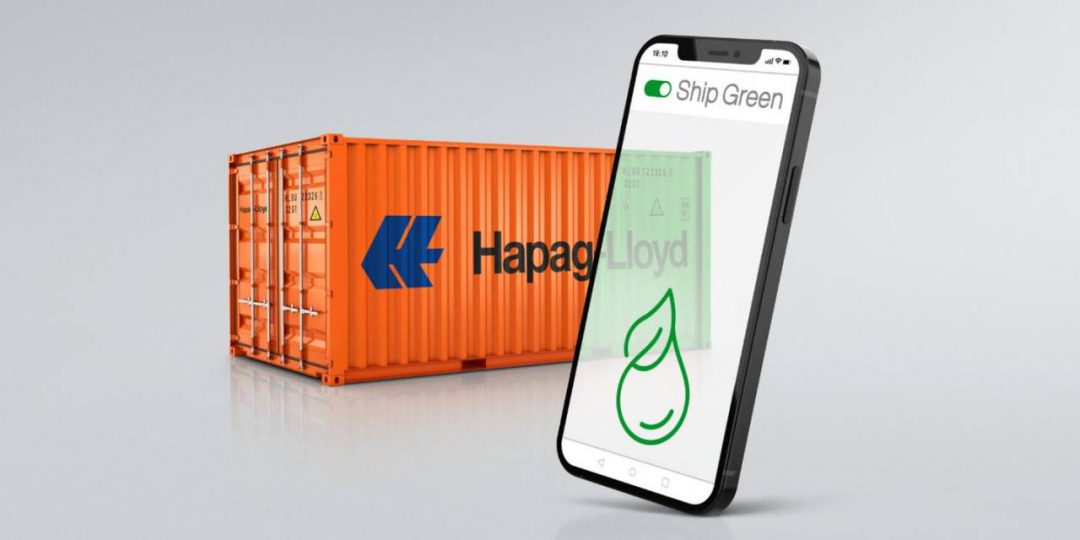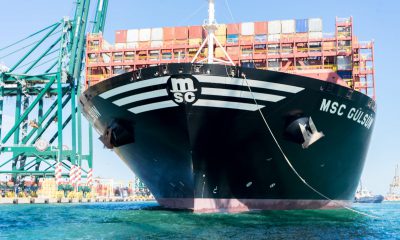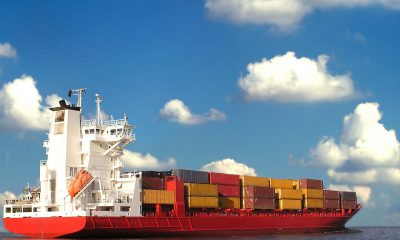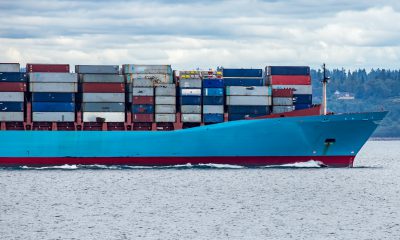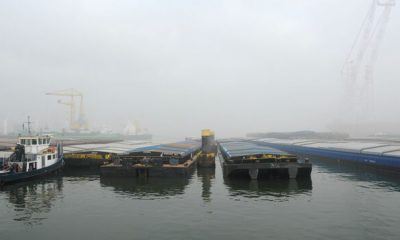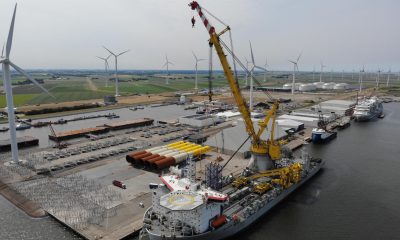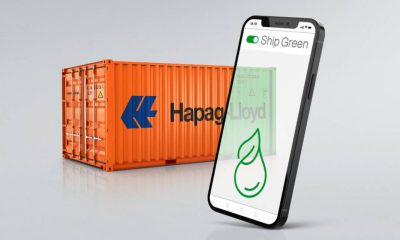To boost the global production capacity of green methanol, A.P. Moller – Maersk enters strategic partnerships with six leading companies with the intent of sourcing at least 730,000 tonnes/year by end of 2025.
The six companies are CIMC ENRIC, European Energy, Green Technology Bank, Orsted, Proman, and WasteFuel.
With this production capacity, by the end of 2025 at the latest, Maersk will reach well beyond the green methanol needed for the first 12 green container vessels currently on order.
“To transition towards decarbonisation, we need a significant and timely acceleration in the production of green fuels. Green methanol is the only market-ready and scalable available solution today for shipping. Production must be increased through collaboration across the ecosystem and around the world. That is why these partnerships mark an important milestone to get the transition to green energy underway.” said Henriette Hallberg Thygesen, CEO of Fleet & Strategic Brands, A.P. Moller – Maersk.
Once fully developed these projects of both bio- and e-methanol will enable Maersk to source green methanol at scale across several regions around the globe.
Collaboration and investments in innovative projects are the most important ways to reach a net zero fuel value chain. Maersk will keep on working with a wide-ranging group of leading companies on these and further projects to accelerate the urgent transition to green energy.
Maersk´s green methanol sourcing partners
CIMC ENRIC, a subsidiary of CIMC (China)
CIMC is a large, industrial conglomerate that has been a partner of Maersk for more than two decades. Its energy division – CIMC ENRIC – is a world leading manufacturer of key equipment and services provider of engineering and system solutions for the clean energy, chemical and liquid food industries.
CIMC ENRIC will develop bio-methanol projects for Maersk in China. The phase one project will have a capacity to produce 50,000 tonnes/year of green methanol, starting in 2024. The second phase of the project will have a capacity produce of 200,000 tonnes/year with start date to be determined. The feedstock for the bio-methanol will be agricultural residues. Maersk intends to offtake the full volume produced.
CIMC and Maersk have enjoyed close cooperation for the past two decades. We’re glad that the two parties have identified another area of collaboration. As a leading intelligent manufacturer in clean energy industry, CIMC ENRIC has rich experience and advanced technology in place. We are always committed to making energy cleaner, the environment more sustainable and to creating a better life. Our partnership on green methanol endeavor will not only support Maersk’s journey towards its net zero goal, but also will jointly contribute to a greener and more sustainable future for the shipping industry.” said Mr. Leo Yang, Executive Director and General Manager of CIMC ENRIC.
European Energy (Denmark)
European Energy is a global renewable energy company and project developer (wind, solar and Power to X). It develops, builds, and operates renewable electricity projects globally with a pipeline consisting of 20 GW renewable energy capacity.
As a partner, European Energy will produce e-methanol for Maersk´s first green feeder vessel, which is expected to be on the water by 2023. They will also develop e-methanol projects in Latin America and the United States that will have a capacity to produce up to 200-300,000 tonnes annually of e-methanol starting in 2025/2026. Maersk intends to offtake the full volume produced on long-term contracts to help its customers realize their own ambitious emission targets.
“We are very pleased to strengthen our already strong relationship with Maersk with this multi-year partnership where the annual target is to deliver up to 300.000 tons of e-methanol. The shipping industry is a vital part in global efforts to curb carbon emissions, and together with Maersk we are now leading this crucial transition towards running ships 100 percent on renewable energy.” said Knud Erik Andersen, Co-founder and CEO of European Energy.
Green Technology Bank (China)
Green Technology Bank (GTB) was established in 2016 by the Chinese government with the priority task to fulfill the 2030 Agenda for Sustainable Development. The purpose is to strengthen the integration of technology and finance, to accelerate the transformation and industrialization of technological achievements, to drive the realization of 2030 sustainable development goals, and explore for a green development model.
GTB will facilitate development of bio-methanol projects in China together with project developers to be identified. The first project is planned to have a capacity to produce 50,000 tonnes/year starting from 2024, and the second project is planned to have a capacity to produce 300,000 tonnes/year at a start date to be determined.
“We’re pleased to support Maersk’s pursuit for green energy to achieve sustainable development. We will collaborate with our partners, integrate technical and financial resources to establish facilities in China to produce green methanol for Maersk. We believe this will also contribute to reduce China’s dependence on energy imports such as oil and Liquefied Natural Gas (LNG). The green methanol produced will rely entirely on resources available in China.” said Junhao Zhu, President of GTB.
Orsted (Denmark)
Orsted is a global renewable energy company with activities within onshore wind, solar-pv, Power-to-X, and offshore wind, where the company is the world leader. Orsted has a strategic ambition of installing 50 gigawatts of renewable energy capacity by 2030. The company is the only energy company in the world with a science-based net-zero emissions target as validated by the Science Based Targets initiative (SBTi).
Orsted aims at becoming a global leader within Power-to-X and currently has a development pipeline of 11 projects across several hard-to-abate sectors. Partnering with Maersk on the company’s ambitious decarbonisation journey, Orsted will develop an e-methanol project in the US that will have a capacity to produce 300,000 tonnes/year starting 2025. Maersk intends to offtake the full volume produced.
“The maritime industry faces a chicken-and-egg challenge, where the supply and demand of green fuels will have to evolve in parallel to fast ensure a sustainable development of zero emission fuels. Orsted is very pleased to partner with A.P. Moller – Maersk to address this challenge by scaling green fuel production together with an industry leader in the maritime sector.” said Martin Neubert, Deputy CEO and Chief Commercial Officer at Orsted.
Proman (Switzerland)
Proman is an integrated energy company and the world’s second largest methanol producer. Headquartered in Switzerland, with assets in the United States, Trinidad and Oman, and ongoing expansion into Mexico and Canada, Proman is a global leader in methanol, fertilizer and other products such as melamine. The company is committed to developing sustainable methanol and ammonia as cleaner alternatives to fossil fuels, offering a pathway to drastically cutting emissions in power generation, overland transportation, shipping and industry.
Proman will aim to supply Maersk with 100,000 – 150,000 tonnes/year of green methanol from its in-development facility in North America. The project will be built by Proman with target start of operations in 2025, producing bio-methanol from non-recyclable forestry residues and municipal solid waste.
“Maersk’s industry-leading commitment to green methanol is fully aligned with Proman’s belief that methanol should be a key part of the energy transition. We are excited to bring our deep industry experience to help deliver on Maersk’s bold ambitions, highlighting the viability of methanol as a marine fuel and working together to deliver green methanol and clean shipping at a global scale.” said David Cassidy, Proman Chief Executive.
WasteFuel (US)
WasteFuel is a California-based start-up addressing the climate emergency by transforming unrecovered waste into sustainable fuels using proven technologies. WasteFuel has established strategic partnerships with leading global companies and technology providers to develop biorefinery projects and to ensure the environmental and commercial aspects of each project and industry are met safely, efficiently, and economically. Maersk Growth invested in the company in 2021.
WasteFuel is developing a bio-methanol project in South America that will produce over 30,000 tons per year starting in 2024. Maersk intends to offtake the full volume produced.
“Maersk´s order of 12 ships -each with a 16,000-container capacity- that can be powered with green methanol is an unprecedented act of leadership in the corporate response to the climate emergency. Those ships need fuel and WasteFuel is ready to provide it, steadily increasing volume over the years to come.” said Trevor Neilson, Co-founder, Chairman and CEO at WasteFuel.
